Final Event speaker

The F-CUBED FINAL CONFERENCE
Advances in Hydrothermal Conversion of Industrial Biogenic Residues into Intermediate Bioenergy Carriers - Results from the F-CUBED Project
The F-CUBED Project´s Final Conference will take place live online and in-person in Florence, Italy on October 6th, 2023. The event will provide technical insights into the project´s research and showcase the results obtained from the pilot testing.
Don´t miss this opportunity to discover how the F-CUBED process can revolutionise industrial waste management and convert underutilised waste streams into bioenergy and produce value-added products.
Background and Introduction to the F-CUBED project
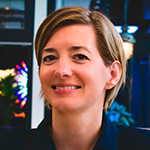
Heather Wray
Heather Wray is a scientist and project manager at TNO in the group Biobased and Circular Technologies. She obtained her PhD in environmental engineering at the University of Toronto, in Canada. Her research interests are broadly focused on sustainability, in particular upgrading biomass wastes to produce energy and materials. In addition, she also does screening life cycle assessments to evaluate early-stage processes and technologies for biomass upgrading.
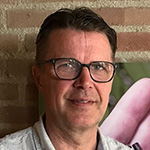
Levien de Legé
What is TORWASH®? Overview of a novel hydrothermal treatment process
TORWASH technology has been developed for conversion of biogenic material into energy carriers to help promote the green energy transition, with particular regard to the treatment of sludges from organic waste streams leading to improved dewatering capability, without extensive energy consumption compared to conventional thermal drying methods. The presentation will provide an insight into the TORWASH technology, that has been tested on sludges from wastewater treatment plants (both communal and industrial) and from food residues, and the end products of the TORWASH process such as solid biofuels and biogas.
Organization: TORWASH
Levien has a Master’s degree in Chemical Engineering from Delft Technical University and in 2020, founded TORWASH together with two colleagues from TNO, where he worked between 2017 and 2020 as senior business developer for Biomass Energy. Levien is currently working at TORWASH to develop and commercialize TORWASH technology for conversion of biogenic materials into energy carriers, with a main focus on scaling up the technique for dewatering of organic sludges.
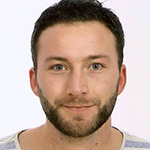
Douwe Zijlstra
Pilot-scale hydrothermal treatment of paper sludge, olive pomace and orange peels into intermediate energy carriers
This presentation shows the development of the hydrothermal treatment of different biogenic residue streams from lab-scale to pilot-scale, focusing on the effect of process conditions on the process and the translation from batch to continuous processing.
Organization: TNO
Dr. Douwe Zijlstra obtained his Ph.D. in Chemical Engineering at the University of Groningen, focusing on mild organosolv lignin extraction. He obtained his BSc. degrees in Chemistry and Chemical engineering and MSc. degree in Chemistry at the same university. In 2021 he started working at TNO as Scientist Innovator, focusing on hydrothermal upgrading of agricultural residue streams.
F-CUBED Products: Performance And Applications
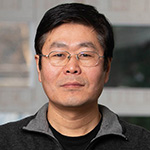
Chuan Wang
Evaluation of utilizing hydrochar generated from TORWASH® process for the steelmaking industry
The steel manufacturing industry is one of the largest and most important industrial sectors in the world. However, it is also one of the most energy intensive and highest coal consuming industries which has a significant impact on global CO2 emissions. One of the aims of the F-CUBED project was to convert biogenic residues into an energy carrier suitable to the iron- and steelmaking processes. This presentation will provide an overview of the research conducted by Swerim on utilising hydrochar derived from organic residues for the blast furnace ironmaking process.
Organization: Swerim
Dr. Chuan Wang trained as a chemical engineer in China before moving to Sweden in 2001 where he completed a masters in environmental engineering from the Swedish Royal Institute of Technology (KTH) and a PhD in energy engineering at Luleå University of Technology (LTU) with a research focus of reducing CO2 emissions from steel plants. Chuan joined Swerim AB in January 2007 in the process metallurgy department and has been working on resource efficiency, recycling and circular economy, biomass residues for metallurgical applications, energy efficiency improvement and CO2 emission reduction for the iron and steel industry. Chuan has been acting as the principal investigator in a number of national, regional and EU funded research projects.
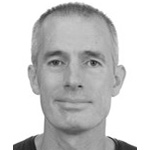
Tim Hendrickx
Biogas recovery from the filtrates of hydrothermally-treated wet residue streams
The TORWASH process enables the production of high-quality intermediate bioenergy carriers from low quality biogenic residues. In producing the bioenergy carriers, a liquid stream is produced which contains dissolved organic compounds. This presentation presents the work that has been done to assess the feasibility to recover biogas from these dissolved organics. Recovered biogas can be used to make a valuable contribution towards the overall energy balance of the TORWASH process.
Organization: Paques
Dr. Tim Hendrickx obtained his PhD in Environmental Engineering at Wetsus / Wageningen University in The Netherlands. He also holds an MSc degree in Chemical Engineering from Twente University.
Between 2009 and 2014 he worked as a post-doc at the sub-department of Environmental Technology at Wageningen University studying anaerobic conversions and novel nitrogen removal routes. Since 2011 Tim has been working at Paques, a Dutch company that is globally active in industrial wastewater and gas treatment, and where Tim is the Global lead on anaerobic technologies. He is the focal point for existing anaerobic technologies and new technology developments and has a close relationship with Universities, Research Institutes, and research projects at both national and EU level.

Manuel Bauer
Nutrient element recovery potential of 3 different feedstocks after the TORWASH® process
This presentation will provide insight into the evaluation of NPK recovery potential after the TORWASH® process via acid-leaching and struvite precipitation. It offers a broad overview of the results obtained from laboratory and mini-plant scale testing.
Organization: University of Hohenheim
Manuel obtained his bachelors and masters degree in biobased products and bioenergy from the University of Hohenheim where he is currently studying for his PhD and working as a research associate and lecturer in the Department of Conversion Technologies of Biobased Resources.
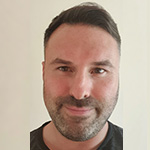
Eddie O´Callaghan
Combustion and Gasification of Pellets produced from TORWASH®
Heat System’s investigation employed the interesting application of pyrolysis, a transformative process which can reliably convert problematic waste residues into valuable resources. This has significant potential to solve many environmental issues while shaping a sustainable, circular economy in the EU.
Organization: Heat Systems
Eddie holds a degree in Chemical & Process Engineering from Munster Technological University, Ireland and has over 20 years of international experience as a Technical Director and chemical engineer in a variety of sectors including mining, renewable energy, thermal design, biotechnology and pharmaceuticals in projects across Africa, Australia, Asia, and Europe. Eddie is the founder of F-CUBED partner "Heat Systems" who design, manufacture and commission state-of-the-art thermal processing solutions for use in the renewables and energy sectors, precious metal and waste recovery, and university research.
Modelling The F-CUBED Processes

Haresh Jayasankar
Connecting F-CUBED's bioenergy carriers: A novel supply chain model
This presentation will offer insights into the F-CUBED project's supply chain dynamics, highlighting the innovative use of hub infrastructures. The session will also unveil key findings and explore the potential transformations for a cost-efficient bioenergy distribution.
Organization: University of Galway
Haresh Jayashankar is currently pursuing his Structured PhD in Mechanical Engineering at the University of Galway. A graduate of the University of Ruhuna, Haresh was awarded a Gold Medal for his outstanding achievements in Mechanical Engineering and honoured with two IMechE awards: the Frederic Barnes Waldron Best Student Award and the Project Award. Haresh also played a pivotal role at the Prime Minister's Office of Sri Lanka, contributing to policy development in the realms of Engineering and Entrepreneurship. During the initial stages of his research at the University of Galway, Haresh focused on the Techno-economic Analysis for Carbon Capture and Transport in Ireland.
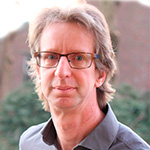
Jan Wilco Dijkstra
Process model of Torwash mild hydrothermal treatment
Based on experimental results, a conceptual process was developed for the F-CUBED process with the help of a flexible process model. The presentation will discuss optimal configuration, performance, and efficiency of the process for the various feedstocks considered.
Organization: TNO
Jan Wilco obtained a master’s in chemical reactor engineering from the University of Twente and a Professional Doctorate in Engineering from the University of Delft. He has over 25 years of experience in conceptual process design, modeling, and evaluation of energy conversion processes. Jan Wilco is a scientist at F-CUBED project coordinators TNO and, currently, his research is focused on biomass conversion and valorisation.
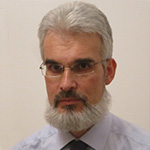
Marco Ugolini
Life Cycle Assessment and Socio-Economic Impact of F-CUBED Product System for pulp & paper biosludge, virgin olive pomace and fruit & vegetable wastes
The presentation illustrates the results of the environmental and socio-economic evaluations conducted according to the Life Cycle Assessment (E-LCA) and Social Life Cycle Assessments (S-LCA) methodologies carried out by CA.RE. FOR. Engineering in Work Package 5 of the F-CUBED project. The outcomes of the environmental assessment are highlighted by the impact categories studied for the F-CUBED Production System and compared to the Reference Cases for the selected biogenic residue streams. In addition, the socio-economic impacts of the F-CUBED Production System have been highlighted on the basis of the most relevant social impact categories of interest to stakeholders and decision makers.
Organization: Care For Engineering
Marco has a Masters in Forest Sciences, and over 25 years of national and international professional experience in environmental fields related to forest management, ecological restoration, biomass value chain creation, product environmental sustainability and life cycle assessment with applications to agroforestry systems. Marco is the Co-Founder and Managing Director of F-CUBED partner CA.RE. FOR. Engineering, a professional association with expertise in supply chain sustainability assessment and certification, and life cycle assessment applied to agri-energy, agri-food and forestry systems.
Treatment Of Olive Sector Waste Residues
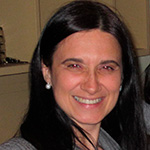
Maria Camilla Bergonzi
Olive leaves: from waste to active in pharmaceutical micro and nanoformulations
Project: OLEAF4VALUE
OLEAF4VALUE is a European project aimed at valorising waste from olive oil production, to make products of pharmaceutical, cosmetic and food interest. Professor Maria Camilla Bergonzi is the Project Leader of OLEAF4VALUE partner the University of Florence, whose role in the project is to apply micro/nano encapsulation technologies to improve solubility and technological performance of olive bioactive compounds and evaluate the influence of optimised formulations on the permeability of olive bioactive compounds and olive leaf fractions using different in vitro tests. The selected formulations were microemulsions, solid dispersions, co-grounds products and polymeric micelles and they have been employed to formulate triterpenes and polyphenols fractions obtained from olive leaves, some examples of which will be reported in the oral presentation.
Organization: University of Florence
Professor Maria Camilla Bergonzi gained her Ph.D. in the Science and Technology of Medicinal Plants in 2002 and has a permanent position as Associate Professor at the School of Human Health Sciences of University of Florence. She is the author of over 130 original papers in international peer-reviewed journals, has one patent and has written three book chapters. She is on the Editorial Boards of the journals Pharmaceutics, Molecules, Current Drug Delivery, ChemMedChem and is a reviewer for many other international journals. She has a deep background in the pharmaceutical technology and analysis of herbal drugs and herbal drug preparations. Her research includes the improvement of bioavailability and technological features of drugs and natural products extracts, by using conventional and innovative drug delivery systems.
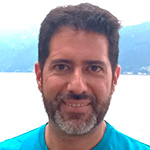
Juan-Pablo Ferrer
LIFE-COMP0LIVE Project: Automotive and furniture biocomposite prototype parts with 40% of reinforcing wood fibers from olive tree pruning waste
Project: LifeCompOlive
The LIFE-COMP0LIVE Project has developed automotive, and furniture bio-composite parts made of recycled polypropylene and is reinforced with 40% natural fibres from olive tree pruning waste which improve the mechanical properties of the polymer matrix. Ford Motor Co., Caliplast and Plasturgia and Matricería Peña are project partners and end-users of these new bio-composites that were developed in collaboration between Andaltec Technological Centre and the University of Jaén. The bio-composite materials developed reduce the carbon footprint compared to the virgin polymer matrices, and the use of olive tree pruning residues avoids the necessity of burning the olive tree pruning waste and provides an additional revenue stream for the farmers.
Organization: Andaltec
Juan-Pablo has a PhD in Renewable Energy from the University of Jaén and won the Extraordinary Award in the area of Engineering and Technology in the 2017/2018 academic year and gained his MSc in Physics from the University of Seville. Juan-Pablo is an accredited Assistant Lecturer by the Spanish Ministry of Universities, with international professional and research experience with prestigious institutions such as Valeo, Fraunhofer and the University of Exeter with the main topics of research including circular economy and polymer bio-composites, concentrating photovoltaics, concentrator optics and lighting systems.
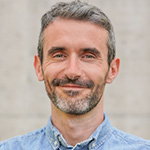
Enrico Tenaglia
Gaia Tech: on a quest for hidden treasures in agro-waste
Project: Phenoliva
Agrowaste is a frequently overlooked source of compounds with promising industrial applications. In the context of the EIT Food project "Phenoliva" (2019-2022) the ETH Zurich spin-off Gaia Tech has pioneered a method for extracting antioxidants from olive pomace. Their current ambition is to expand this innovative approach to other agricultural byproducts. This expansion aims to create upcycled ingredients that can replace artificial and petroleum-derived alternatives in the cosmetics and food sectors.
Organization: Gaia Tech
Enrico Tenaglia is a Molecular Biosciences PhD graduate with long-standing international experience in leading R&D projects and partnerships. After spending several years at the interface between Engineering and Biology, Enrico joined Gaia Tech as a co-founder, driven by the motivation to create real-life impact through his work.
Conclusions

Heather Wray
Heather Wray is a scientist and project manager at TNO in the group Biobased and Circular Technologies. She obtained her PhD in environmental engineering at the University of Toronto, in Canada. Her research interests are broadly focused on sustainability, in particular upgrading biomass wastes to produce energy and materials. In addition, she also does screening life cycle assessments to evaluate early-stage processes and technologies for biomass upgrading.



